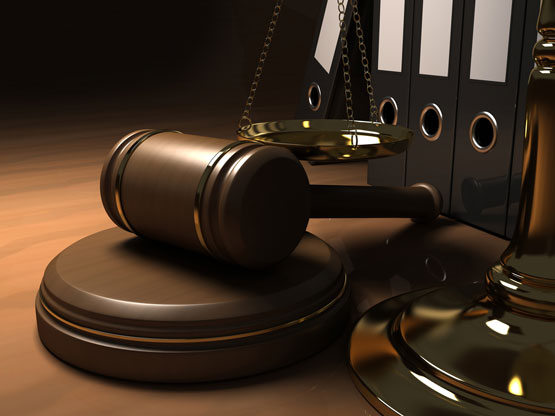
The fate of the Sept. 11 families' lawsuit against the Kingdom of Saudi Arabia may depend on the Partridge family. The Justice Against Sponsors of Terrorism Act, enacted by Congress on Thursday over President Barack Obama's veto, is supposed to let the suit go forward. But for the federal courts to have legal authority, the families will most likely have to show that the Sept. 11 attacks were "effects" of actions taken by the Saudi government. And the leading U.S. Supreme Court case governing what counts as effects involved the actress Shirley Jones, known for her role as Shirley Partridge in the 1970s show "The Partridge Family." Jones sued a writer and editor for the National Enquirer where she lived in California over a libelous article that was written in Florida.
The legal issues are technical, but they're important for whether the act is a real threat to Saudi Arabia or merely an empty symbolic gesture by Congress. The Saudis clearly think the threat is meaningful. And the president argued in vetoing the law that it would set a bad precedent for other countries that want to allow suits against the U.S. government. But none of this will matter much if there's a loophole that ensures the Sept. 11 suit can't go forward.
At the risk of oversimplifying some truly complex issues in the law of civil procedure, here's the issue. In passing the bill, Congress was amending a law called the Foreign Sovereign Immunities Act. That law says you can't sue a foreign government in U.S. courts, except for a few specific exceptions, such as when the foreign government is engaged in U.S. commerce.
The terrorism bill added a new exception. It says that an American can sue a foreign government for damages "occurring in the United States and caused by an act of international terrorism in the United States; and a tortious act or acts of the foreign state … regardless where the tortious act or acts of the foreign state occurred."
Translated into English, that means you can sue a foreign government when the act of terrorism occurred in the U.S., as the Sept. 11 attacks did, so long as the foreign government contributed to causing the attack. Under the act, it doesn't matter where the foreign government contributed to causing the attack. In theory, if the Saudi government took actions within its own country to fund al-Qaeda and that contributed to the attacks, that would authorize the suit.
But the constitutional law that governs whom you can sue, and where, isn't so simple -- and because it's based on the Constitution, Congress can't legislate around it. According to the Supreme Court's interpretation, a U.S. court must have what is called "personal jurisdiction" over any defendant for a lawsuit to go forward.
Personal jurisdiction comes in two flavors, general and specific. It would be almost impossible for the courts to have general jurisdiction over the government of Saudi Arabia, because a foreign entity must be "at home" to be sued under current precedent. It was on this ground that the 2nd Circuit Court of Appeals recently rejected a lawsuit against the Palestinian Authority and Palestine Liberation Organization under the Anti-Terrorism Act. If the those groups are only "at home" in Ramallah, as the court held, the Saudi government is similarly only "at home" in Riyadh.
That leaves specific jurisdiction as the only way to haul the Saudi kingdom into court under the new bill. And the constitutional bar is probably higher than what Congress wrote into the law.
In 1984's Calder v. Jones, the Shirley Partridge case, the Supreme Court held that Jones could sue the National Enquirer editor and writer in California for an article written in Florida. But it reasoned that the writer and editor's actions were "expressly aimed at California," and said the libel was "intentionally directed at a California resident." It followed, said the court, that they could be sued in California based on the "effects" of their Florida conduct in California.
Under this standard, it probably wouldn't be enough to show that Saudi Arabia supported al-Qaida and so indirectly contributed to causing the Sept. 11 attacks. The families would have to show that the kingdom intentionally aimed to cause harm in New York, or at least the U.S.
In a 2014 decision, the Supreme Court refined the Partridge precedent. It said that the relationship between the defendant and the place where the suit is brought "must arise out of contacts that the defendant himself creates with the forum."
That test very likely would not cover Saudi Arabia. Even if the Sept. 11 families could show that the kingdom helped support al-Qaida, that's a far cry from demonstrating that Saudi Arabia created contacts with New York or the U.S. simply by virtue of supporting al-Qaeda.
If this analysis is right, the terrorism bill won't ultimately enable legal authority over Saudi Arabia. To be sure, the kingdom would have to appear in court and argue that the court has no authority over it. That's a risky step that foreign governments don't like to take, because a government can lose on the question of jurisdictional authority and then be held liable in the underlying lawsuit.
Nevertheless, if the case against Saudi Arabia is thrown out on jurisdictional grounds, then the bill may not create the dangers of reciprocal suits that many fear. That would be good for foreign relations -- and bad for the victims' families who hope to hold a government, not just al-Qaida, responsible for the Sept. 11 attacks.
Comment by clicking here.
Noah Feldman, a Bloomberg View columnist, is a professor of constitutional and international law at Harvard University and the author of six books, most recently "Cool War: The Future of Global Competition."


 Contact The Editor
Contact The Editor
 Articles By This Author
Articles By This Author
